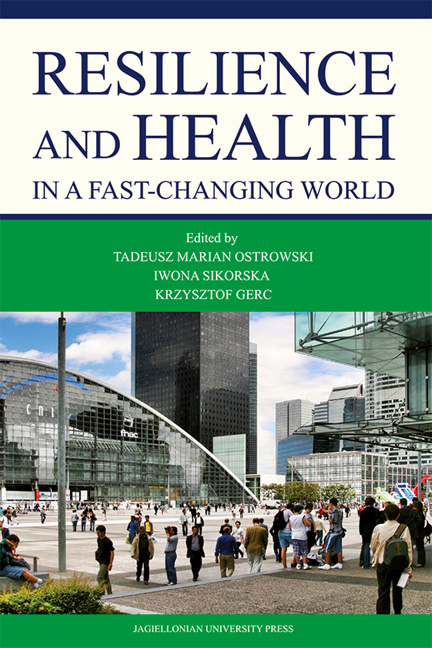Book contents
- Frontmatter
- Table of Contents
- Resilience from a Variety of Theoretical Perspectives: an Introduction
- I RESILIENCE IN THE PHILOSOPHICAL AND THE EXISTENTIAL CONTEXTS
- II SOCIAL CONTEXTS OF RESILIENCE
- III PROMOTING OF RESILIENCE AND ASSISTED RESILIENCE
- Improving the Socio-Emotional Health of Young People in Early Secondary Education: Preliminary Findings from a Study of the Pyramid Intervention Project
- Brave Children: How to Develop Resilience in Childhood
- Using Music to Stress Reduction
- Mental Health in Acceptance and Commitment Therapy (ACT)
- The Crisis of Adolescence in the Context of Resilience – Positive Prevention
- IV THREATS TO MENTAL HEALTH
- List of Authors
Brave Children: How to Develop Resilience in Childhood
from III - PROMOTING OF RESILIENCE AND ASSISTED RESILIENCE
Published online by Cambridge University Press: 12 January 2018
- Frontmatter
- Table of Contents
- Resilience from a Variety of Theoretical Perspectives: an Introduction
- I RESILIENCE IN THE PHILOSOPHICAL AND THE EXISTENTIAL CONTEXTS
- II SOCIAL CONTEXTS OF RESILIENCE
- III PROMOTING OF RESILIENCE AND ASSISTED RESILIENCE
- Improving the Socio-Emotional Health of Young People in Early Secondary Education: Preliminary Findings from a Study of the Pyramid Intervention Project
- Brave Children: How to Develop Resilience in Childhood
- Using Music to Stress Reduction
- Mental Health in Acceptance and Commitment Therapy (ACT)
- The Crisis of Adolescence in the Context of Resilience – Positive Prevention
- IV THREATS TO MENTAL HEALTH
- List of Authors
Summary
Abstract
The article sets out to describe the pilot programme BRAVE CHILDREN concerning ways to develop resilience in middle childhood. The project has adopted an understanding of resilience according to the following model: high protective factors levels in children, including such factors as initiative, self-control and attachment; low risk factors levels (behavioural concerns) and high social maturity levels in children and their internal locus of control.
The programme included 13 meetings conducted over the course of 6 months, each meeting taking approx. 60 minutes. The classes were designed for preschool children aged 5 years to 5 years and 11 months. Their focus was to develop such competencies as self-awareness and the awareness of others, self-agency, self-control, social skills, problem-solving skills, coping with stress and negative emotions. The programme was evaluated by measuring an increase in children's resilience reflected in their individual resources (evaluated before and after the programme).
The project involved an educational intervention group composed of 62 children (from three different preschools) and a control group composed of 59 children (from three other preschools). Observational data were obtained from both parents of all children and six teachers of preschool groups.
The results obtained as part of the programme's evaluation indicate a significant change and improvement in resilience indicators in the educational intervention group. The increase in competencies was observed with regard to initiative, self-control and total protective factors. A decrease in behavioural concerns was also observed in the intervention group. Neither the intervention group nor the control group demonstrated any significant change with regard to social development.
Key words: resilience, childhood, life skills, health promotion
Introduction
The article adheres to the third line of research on resilience which focuses on promoting resilience and assisted resilience by fostering individual, family and environmental resources (two other lines of research identify individual resilience resources and study resilience as a process respectively). The concepts of promoting resilience and assisted resilience have become part and parcel of the health psychology lexicon. Researchers have also created separate categories to define the concept of resilience and apply it in further research. The Second World Congress on Resilience held in May 2014 in Timișoara, Romania, devoted three sessions and a total of thirty papers to the concepts of promoting resilience and assisted resilience (Sikorska, 2014).
- Type
- Chapter
- Information
- Resilience and Health in a Fast-changing World , pp. 121 - 140Publisher: Jagiellonian University PressPrint publication year: 2015



